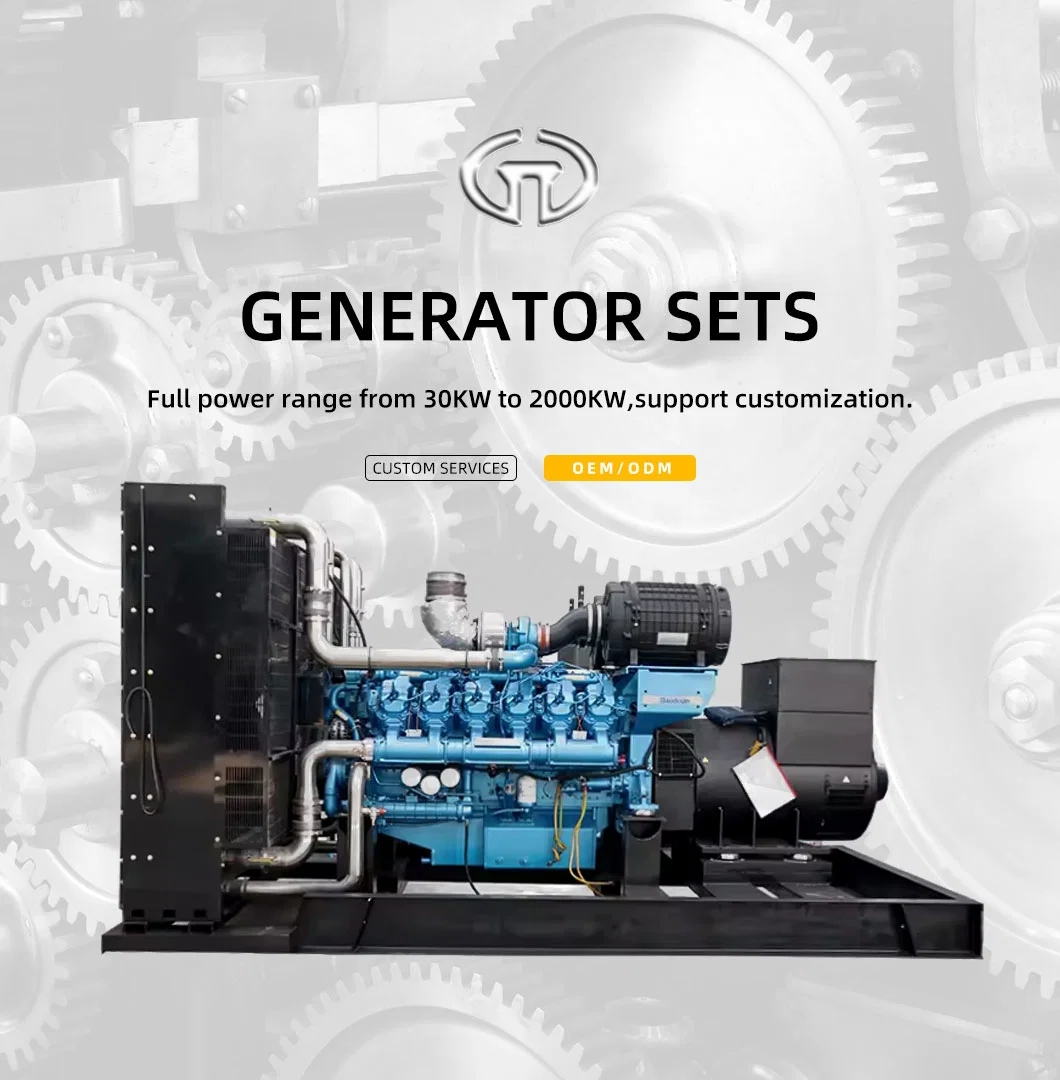Introduction
In the dynamic world of construction, one of the most critical components for ensuring uninterrupted operations is a reliable power source. Diesel generators have long been the go-to solution for construction sites, providing a dependable source of electricity to run essential equipment and tools. In this comprehensive guide, we will delve into the various aspects of diesel generators for construction sites, including their benefits, types, applications, maintenance, and best practices.
Benefits of Diesel Generators for Construction Sites
1. Reliability: Diesel generators are known for their robustness and reliability, making them ideal for construction sites where power outages can disrupt operations. These generators can provide continuous power supply even in harsh conditions, ensuring that construction projects stay on track.
2. Portability: Many diesel generators designed for construction sites are portable and can be easily transported to different locations within the site. This flexibility is crucial for construction projects that require power in various areas as work progresses.
3. Power Output: Diesel generators are capable of producing high power output, making them suitable for running heavy-duty equipment such as cranes, concrete mixers, and power tools commonly used in construction.
4. 75kw diesel generator for remote industrial applications : Diesel generators are more fuel-efficient compared to gasoline-powered generators, providing cost savings over the long term, especially for construction projects that require continuous power supply for extended periods.
5. Durability: Diesel generators are built to withstand rugged conditions commonly found on construction sites, ensuring they can operate reliably even in challenging environments.
Types of Diesel Generators for Construction Sites
1. Portable Diesel Generators: These compact generators are designed for easy transportation around construction sites. They are available in various power capacities to suit different construction needs.
2. Skid-Mounted Diesel Generators: Skid-mounted generators are mounted on a steel frame or skid, making them easy to move with a forklift or crane. They are commonly used in temporary construction sites or as backup power sources.
3. Towable Diesel Generators: These generators are mounted on trailers, allowing them to be towed behind vehicles for easy transportation between construction sites. They are suitable for projects that require power at multiple locations.
4. Standby Diesel Generators: Standby generators are designed to provide backup power in case of a grid failure. They are essential for construction sites that cannot afford downtime due to power outages.
Applications of Diesel Generators in Construction
1. Powering Tools and Equipment: Diesel generators are used to power a wide range of construction tools and equipment, including drills, saws, compressors, and pumps. They provide the necessary electricity to operate these tools efficiently on-site.
2. Lighting: Construction sites often require lighting during early mornings, late evenings, or night shifts. Diesel generators can power lighting systems, ensuring a well-lit and safe working environment for construction workers.
3. Welding: Welding is a common task in construction projects, and diesel generators can provide the high power output required for welding machines to operate effectively.
4. HVAC Systems: Heating, ventilation, and air conditioning (HVAC) systems are essential for maintaining comfortable working conditions on construction sites. Diesel generators can power HVAC units to regulate temperature and ventilation.
5. Site Offices and Facilities: Construction sites typically have site offices, restrooms, and other facilities that require electricity. Diesel generators can provide power to these structures, supporting the administrative and welfare needs of the site.
Maintenance of Diesel Generators for Construction Sites
1. Regular Inspections: Conduct routine inspections of the generator to check for leaks, loose connections, worn-out parts, and other potential issues. Address any problems promptly to prevent breakdowns during critical construction phases.
2. Fuel Management: Ensure that the diesel fuel used in the generator is clean and free of contaminants. Monitor fuel levels regularly and follow proper storage practices to prevent fuel degradation.
3. Oil and Filter Changes: Regularly change the oil and filters according to the manufacturer's recommendations. Clean oil and filters are essential for the efficient operation of the generator and prolonging its lifespan.
4. Cooling System Maintenance: Check the coolant levels and inspect the radiator for any leaks or blockages. Proper cooling system maintenance is crucial for preventing overheating and ensuring optimal performance.
5. Battery Care: Keep the generator's battery charged and clean to prevent starting issues. Inspect the battery terminals for corrosion and ensure proper connections for reliable operation.
Best Practices for Using Diesel Generators on Construction Sites
1. Proper Sizing: Select a diesel generator with the appropriate power capacity to meet the demands of the construction site. Oversized generators can lead to fuel wastage, while undersized generators may not provide enough power for essential equipment.
2. Location Placement: Position the generator in a well-ventilated area away from flammable materials to reduce the risk of fire hazards. Ensure proper grounding and follow safety guidelines when installing the generator on-site.
3. Noise Control: Consider using soundproof enclosures or barriers to minimize the noise generated by the diesel generator, especially in residential or noise-sensitive areas near the construction site.
4. Emergency Planning: Develop an emergency response plan that includes procedures for handling power outages, generator failures, and other unforeseen events that may impact construction operations. Train site personnel on emergency protocols to ensure a quick and effective response.
5. Environmental Compliance: Adhere to environmental regulations and guidelines when operating diesel generators on construction sites. Properly dispose of waste materials, such as used oil and filters, to minimize environmental impact.
Conclusion
Diesel generators play a vital role in powering construction sites, providing the necessary electricity to run tools, equipment, lighting, and other essential systems. Their reliability, portability, and durability make them a popular choice for construction projects of all sizes. By understanding the benefits, types, applications, maintenance, and best practices associated with diesel generators, construction site managers can ensure uninterrupted power supply and smooth operations throughout the project lifecycle.

